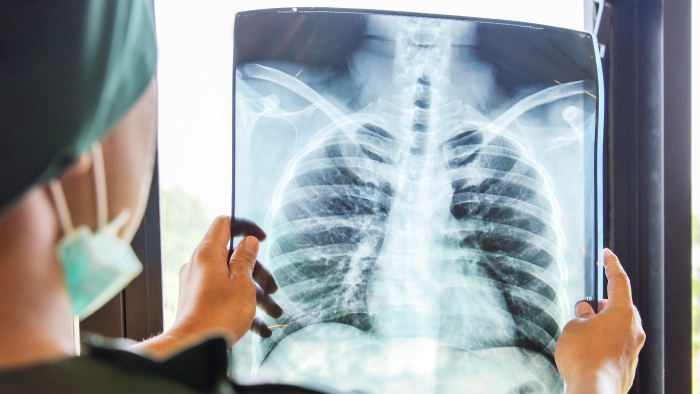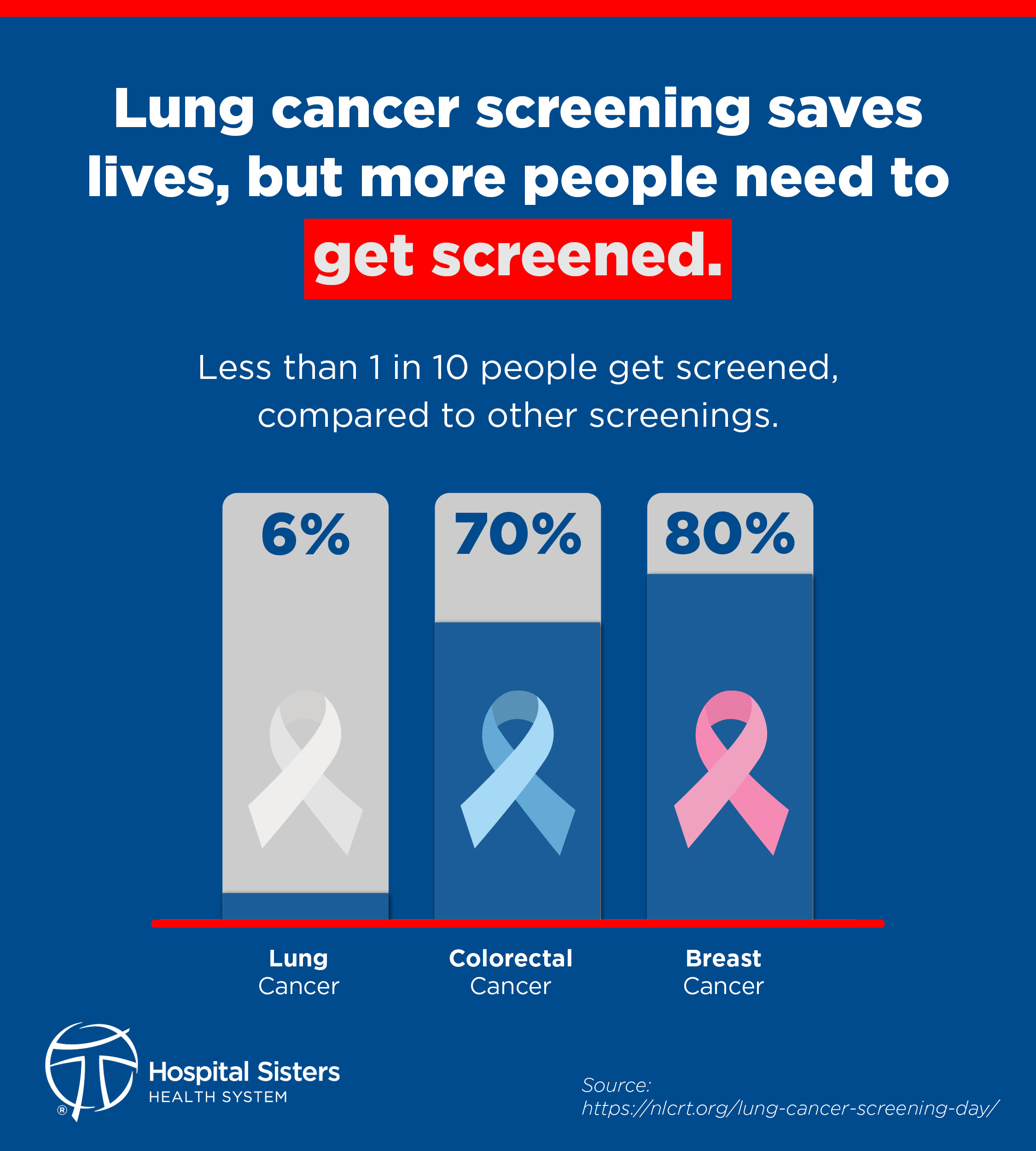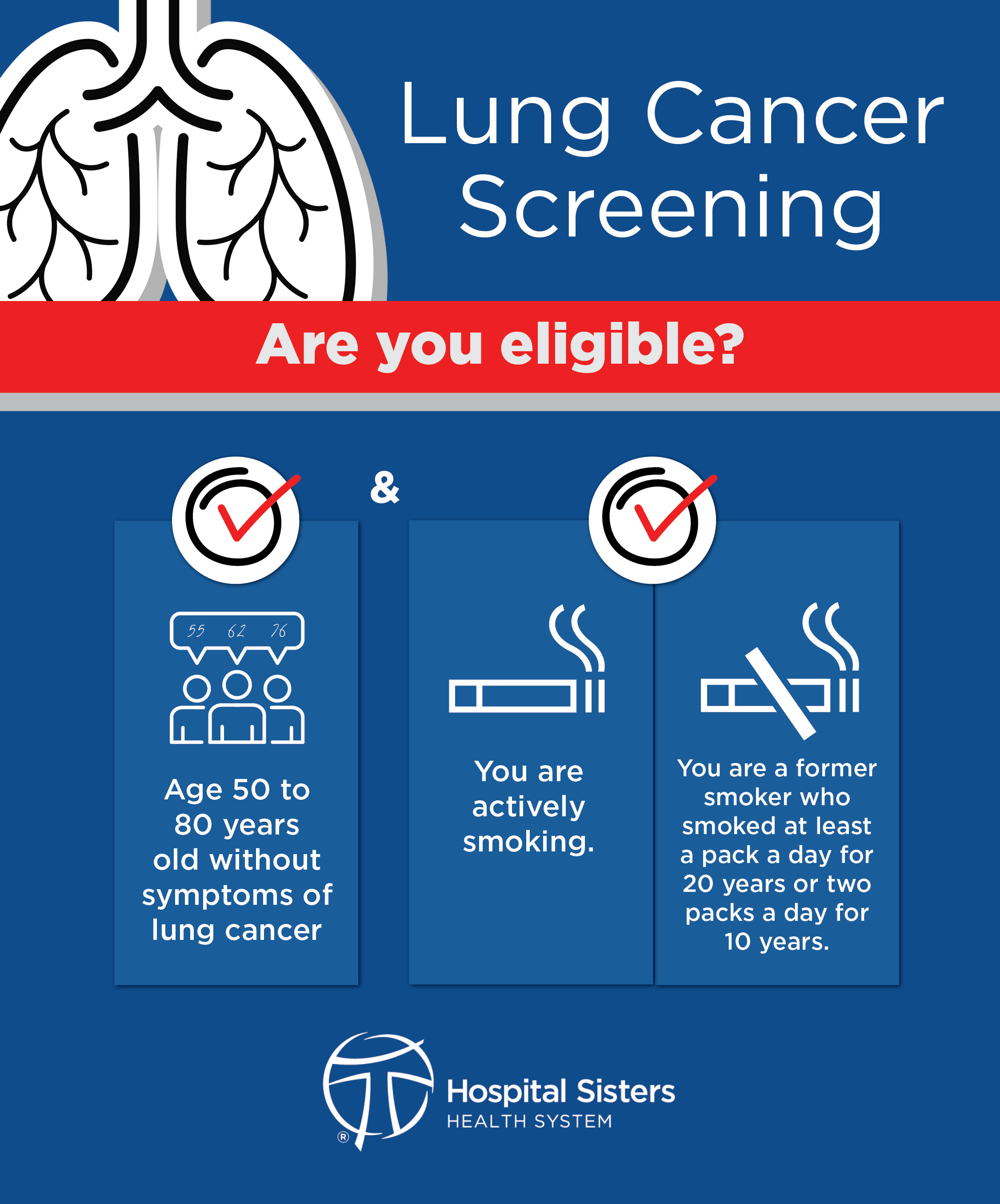Lung Cancer Screening
A non-invasive low-dose CT scan to detect spots on the lung.

Are You at Risk?
According to the American Cancer Society, more people die from lung cancer than any other type of cancer, but less than one out of 10 at-risk individuals are getting screened.
However, if lung cancer is diagnosed early, it’s associated with a nearly 8x higher five-year survival rate than if diagnosed at a late stage.
You may benefit from a lung cancer screening if both of the following risk factors are true:
- You are 50-80 years old and
- You are a current smoker or previously smoked at least a pack a day for 20 years or two packs a day for 10 years

Frequently Asked Questions
A lung cancer screening is a quick, painless and non-invasive, low dose CT scan.It can detect nodules or spots on your lung which might be an early indicator of lung cancer.
It takes just a few minutes to have a scan that can detect cancer at its earliest stage to potentially save your life.
Yes. The CT scan can also detect signs of pneumonia, tuberculosis or emphysema.
Yes, talk with your doctor about the potential benefits, limitations and possible risks of having a lung cancer screening.
After reviewing and discussing the criteria, your health care provider will determine if you are a candidate for a lung cancer screening.
Patients should talk with their primary care provider about their personal risks and request a referral for a lung cancer CT screening.
Once your have a referral, you can call HSHS central scheduling at 217-757-6565 to make an appointment at a convenient HSHS location.
Your results will be available within your MyHSHS within 5 – 7 days.
Your provider may also call and schedule follow-up care if needed.
Things to Consider
Before discussing a lung screening with your health care provider, you should:
- Ensure you qualify for the screening and its purpose, process, benefits, limitations and possible disadvantages.
- Screenings should not take place if you have serious health problems or if you will be unable or unwilling to complete the recommended treatments.
- If you currently smoke, ask your health care provider about resources to help you quit.
